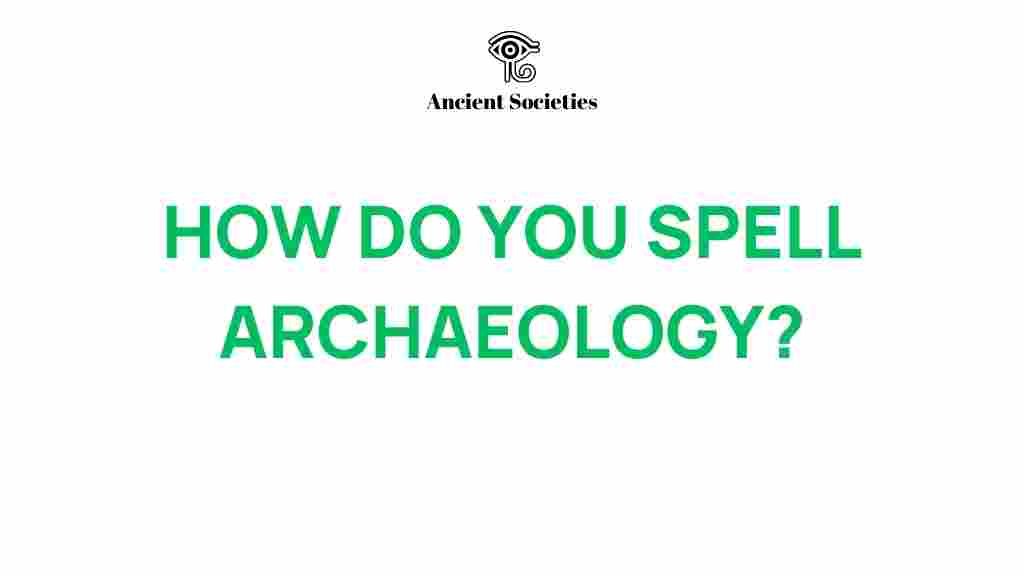The Intriguing World of Archaeology
Archaeology is a fascinating field that bridges the gap between the past and the present. It offers us a glimpse into ancient civilizations, revealing their cultures, daily lives, and the remnants they left behind. Through meticulous excavation and the study of historical artifacts, archaeologists work tirelessly to preserve our cultural heritage and enhance our understanding of human history.
Understanding Archaeology
Archaeology encompasses the study of human history through the excavation of sites and the analysis of artifacts. It is not merely about digging up the past; it’s a complex blend of science, history, and anthropology. The focus on ancient civilizations allows archaeologists to piece together how societies functioned, interacted, and evolved over time.
The Process of Excavation
Excavation is a core activity in archaeology and involves several key steps:
- Site Selection: Archaeologists begin by identifying potential sites based on historical records, environmental factors, and previous discoveries.
- Surveying: A detailed survey is conducted to map the area, including surface finds and features.
- Excavation: Once a site is deemed significant, careful excavation begins. This includes stratigraphic digging, where layers of soil are analyzed.
- Documentation: Every artifact and feature uncovered is meticulously documented for future analysis.
- Analysis: Artifacts are studied using various scientific techniques to gather data about their age, use, and cultural significance.
- Preservation: Once excavated, artifacts require proper preservation methods to ensure their longevity.
Key Discoveries in Archaeology
Throughout history, numerous archaeological discoveries have reshaped our understanding of ancient civilizations. Here are some notable examples:
- King Tutankhamun’s Tomb: Discovered in 1922, this tomb revealed a wealth of artifacts and offered insights into ancient Egyptian burial practices.
- Machu Picchu: The lost Incan city, rediscovered in 1911, has fascinated researchers and tourists alike with its sophisticated architecture and agricultural terraces.
- The Rosetta Stone: This artifact, discovered in 1799, was crucial in deciphering Egyptian hieroglyphs, unlocking the secrets of an ancient culture.
The Importance of Preservation
Preserving archaeological sites and artifacts is essential for future generations. Here are some challenges faced in preservation:
- Environmental Threats: Natural elements can deteriorate artifacts and sites over time.
- Human Activity: Urban development and tourism can lead to the destruction of significant archaeological sites.
- Funding and Resources: Limited resources can hinder preservation efforts, making it essential to promote awareness and support.
Cultural Heritage and Archaeology
Archaeology plays a vital role in understanding and preserving cultural heritage. It allows us to connect with our ancestors and comprehend their experiences. This connection informs modern identity and cultural practices. The protection of archaeological sites is a responsibility that extends beyond researchers to communities and governments worldwide.
Anthropological Research in Archaeology
Anthropological research is integral to archaeology. It provides context for the artifacts and sites discovered. By applying anthropological theories and methods, archaeologists can better understand cultural practices, societal structures, and human behavior. Here are some ways anthropological research enhances archaeology:
- Contextual Analysis: Understanding the social and cultural context of artifacts helps to interpret their significance.
- Comparative Studies: Comparing findings from different sites can reveal patterns and connections between ancient civilizations.
- Interdisciplinary Approach: Collaboration with other fields such as geology, chemistry, and history enriches archaeological research.
Troubleshooting Common Issues in Archaeology
While archaeology is a rewarding field, it also presents certain challenges. Here are some common issues and tips for overcoming them:
- Site Damage: Always assess the site’s condition before excavation. Use protective measures to prevent further damage.
- Artifact Preservation: Ensure proper storage conditions to prevent deterioration of artifacts after excavation.
- Funding Shortages: Seek grants and community support to fund excavation and preservation efforts.
Conclusion
Archaeology is an ever-evolving field that continues to unveil the mysteries of ancient civilizations. Through excavation, the study of historical artifacts, and the preservation of cultural heritage, we gain invaluable insights into our past. The work of archaeologists not only enriches our understanding of history but also fosters a sense of connection to our shared human experience.
For more information about archaeological techniques and discoveries, you can visit the Archaeological Institute of America. Join the adventure of archaeology and explore the stories that shape our world today!
This article is in the category Archaeology and created by AncientSocieties Team
